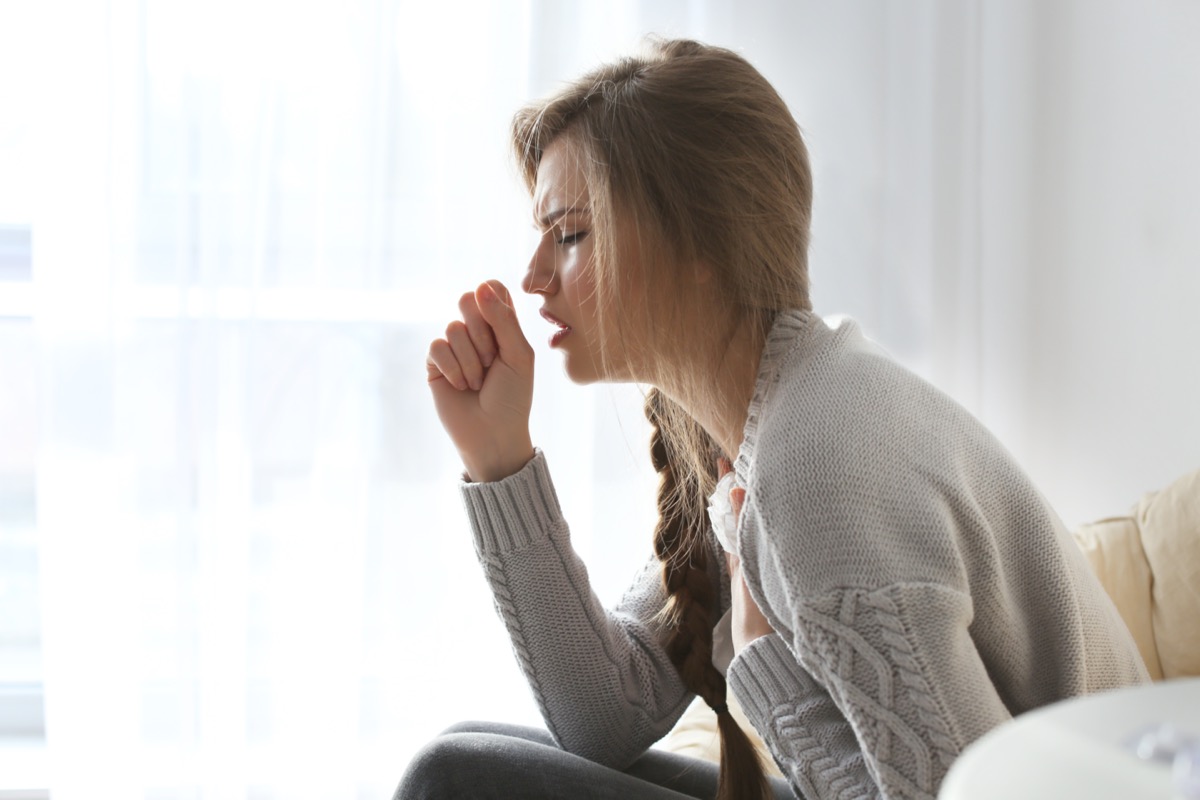Could You Have Already Had Coronavirus and Not Known It?

They're the warning signs you haven't stopped hearing about: a high fever, a dry cough that just won't seem to quit, trouble breathing, fatigue, loss of appetite, and even loss of taste and smell. If you're experiencing these symptoms, you'll want to self-quarantine as there's a chance you could have contracted COVID-19.
The Center for Disease Control and Prevention announced the first case of the novel coronavirus in the U.S. on Jan. 21, 2020. So it's expected to believe the virus hadn't made its way to America until then.
But there are still some people asking themselves, "did I have coronavirus months before?"
Is that even possible?
Well, the answer isn't as clear cut as you may think, but there are plenty of reasons to believe you may have just had COVID-19 and didn't even know it.
The Mysterious Illness
It's always difficult to pinpoint exactly where, how, and when someone may have contracted a contagious disease whether it's a common cold, the flu, or strep throat. The same can be said of COVID-19—it's proven to be highly contagious and there's a good chance those who have contracted it aren't exactly sure how they caught it. The CDC says flu season occurs in the fall and winter in the U.S. with peak flu-activity taking place between December and February. It's important to note that even the CDC reminds us that there are many other respiratory viruses that circulate during flu season that may bring about symptoms similar to those who get the flu.
Sounds similar to coronavirus, right?
Many have taken to social media to document their journey with COVID-19, as well as those who believe they too had the virus, long before the global pandemic started. On Twitter, users have shared their stories, explaining as far back as December and November that they experienced a sudden, rather intense illness, unlike anything they had before. For two weeks, they too had a high fever, cough, and a hard time breathing—among other flu-like symptoms that have been connected to coronavirus—and the doctors they saw couldn't really offer up a proper diagnosis.
The same thing can be said for one 27-year-old New Jersey woman who fell ill at the end of September. She is a teacher who suddenly got sick at the beginning of the school year, along with her sister, who was experiencing the same symptoms.
"I remember being extremely tired and when I started checking my heart rate on my Fitbit I was noticing a difference," she explained to us and asked to remain anonymous. "Usually, my resting heart rate is around 70 BPM and [suddenly] it was up to 105 BPM. If I was walking around my classroom or living room, it would shoot up to 135 BPM. I could feel my heartbeat in my chest and I was out of breath quite often. I had a fever for a solid 14 days. It hovered around 102 degrees and remained pretty consistent for those two weeks."
Along with coping with these symptoms and not really feeling any better, she also was dealing with the fact that doctors really couldn't pinpoint what she was fighting.
"When I went to Urgent Care they tested me for the flu, but it came back negative," she said. "They weren't sure what was going on, so they told me to call in a few days if I still felt sick. I did call five days after my visit with the same fever, tiredness, and heart rate concern, but again, there were no answers. I went to see my primary care doctor who sent me for a chest X-ray. That didn't show anything, but she was concerned about my heart rate, too."
A blood test was then ordered, which unfortunately didn't reveal any new information.
"When they tested my blood the only thing that came back was Epstein-Barr virus (known as mono), but I had that almost ten years prior while in college and it definitely didn't feel like this. Plus, I know that stays in your system once you've had it so I'm not sure that's what was causing all of this," she said. "My sister never got answers from her doctors either and as someone with a compromised immune system, that was scarier for her. After about two weeks [though], we both fully recovered. As we hear more about the coronavirus now I feel like it's possible we both had a less severe case of it back in the fall."
She's not alone in dealing with a rather mysterious illness that possibly could've been a case of coronavirus. A 25-year-old woman who lives in Brooklyn, New York—who also asked to remain anonymous—recalled to us how she and her 28-year-old boyfriend both got sick in mid-January.
"I slept for most of the week, fighting off a fever. I remember crying because I was so fatigued and it took so much energy to do anything," she said. "I was constantly switching back and forth between having chills and the sweats, and had the slightest cough. My boyfriend came down with it a few days after, with similar symptoms and fatigue, and he had the worst cough I've ever heard a person have and it lingered for at least two weeks."
She explained that her boyfriend needed to use an inhaler at times when he would start coughing, and he doesn't normally use an inhaler. While the couple wasn't tested for the flu, they had both spent time with a member of her family a week and a half prior to getting sick, and he too had the same symptoms. He went to a doctor and tested negative for the flu, so they assumed they didn't have the flu either.
"Obviously, without having been tested, or getting one of the new anti-body tests that are rolling out, we'll never know for sure [if we had coronavirus], but I do know that we were both so sick for about a week, to a week and a half and are both otherwise healthy," she said.
STAY INFORMED: Sign up for our newsletter to get the latest coronavirus foods news delivered straight to your inbox.
Could you have had coronavirus and just didn't know at the time?
As we know, the flu season brings out many illnesses that aren't necessarily the flu, and if your flu-test comes back negative, you're wondering what exactly do you have.
So was COVID-19 an issue in the U.S. before the CDC officially diagnosed the first case?
Well, the bottom line is that there is no way to know if you had coronavirus if you didn't get tested for it. That is the only way to know for sure—you get tested and the results come back positive. Now that more information is being shared each and every day about coronavirus, there is a chance you may have had it—you even could've been asymptomatic. But it's also very likely you may not have had coronavirus months ago, as there isn't much research out there yet to back up these claims that it was spreading throughout the U.S. before the first reported case. As long as you stayed home, took care of yourself, and are (hopefully!) recovered now, living the quarantine life as everyone should be at this time, then that's what matters most.








